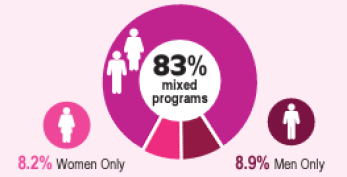

Amalgamated research findings raise the intriguing possibility that experiencing the resolution of breakdowns or tensions (‘ruptures’) in the therapist-client relationship promotes client welfare even more than rupture-free relationships...
Objectives: Roll-your-own (RYO) cigarettes have become popular in the UK and reduce the cost of smoking, potentially mitigating the impact of tax increases on quitting. We examined whether RYO cigarette use was associated with...
The Scottish Government has released the new Alcohol and Drugs Strategy, which aims to improve health by preventing and reducing alcohol and drug use, harm and related deaths. There were a record 934 drugs-related deaths in Scotland in 2017...
The science of addiction is complicated, and it continues to be a field where the debate over definitions, models, theories, and the most appropriate ways to respond continues.
EMCDDA's Insight Review provides a critical analysis of the...
Many people successfully recover from substance use disorders. Understanding the factors that contribute towards people deciding to stop using substances can help guide treatment and design interventions.
A recent study has explored the...
Drinking alcohol is a risk factor contributing to seven types of cancer.
The more alcohol you drink, the greater the risk of developing cancer.
This fact sheet, developed by Alcohol Change UK, explains how high these risks are, which...
Alcohol Change UK have released a fact sheet highlighting the various ways alcohol can affect the health of your brain as well as changes you can make in order to take care of this vital organ.
Alcohol addiction can put a significant strain on family relationships and well-being. There has been a substantial rise in alcohol consumption and alcohol use disorder in India. However, it is rare that the perspectives of family members...
Alcohol Change UK have released their latest report, which highlights the state of alcohol use in the UK and recommends changes that will reduce harm and promote a healthier society.
The report gives a clear overview of the cost and...
Adolescence is a period of time where young people are more likely to seek independence and novel experiences, experiment with their expression and identity and have less regard for risk. Given the natural surge in sensation-seeking...
Highlights
Th...
Highlights
The Journal of Addiction has published its latest podcast describing the highlights from the December issue of Addiction.
In addition to describing the key features that are presented in the journal, the podcast includes a selection of...
Reduced dopamine D2 receptor (D2R) ligand binding has repeatedly been demonstrated in the striatum of humans with alcohol use disorder (AUD). The attenuated D2R binding has been suggested to reflect a reduced D2R...
El consumo de drogas sigue representando un problema importante en las Américas, y uno que desa a a los formuladores de polí cas en los niveles más altos. La Comisión Interamericana para el Control del Abuso de Drogas (CICAD), de la...
How much a patient expects treatment will help is not just an empty prediction but a force in making treatment help, is the strong possibility raised by a review commissioned by an American Psychological Association task force. The...
Drug use continues to represent a significant problem in the Americas, and one that challenges policy makers at the highest levels. The Inter-American Drug Abuse Control Commission (known by its Spanish language acronym, CICAD), of the...
How can we make the most of group therapy, a common treatment/support format in substance use treatment? Recommendations do not get more authoritative than those advanced in this review commissioned by the American Psychological Association...
Share the Knowledge: ISSUP members can post in the Knowledge Share – Sign in or become a member